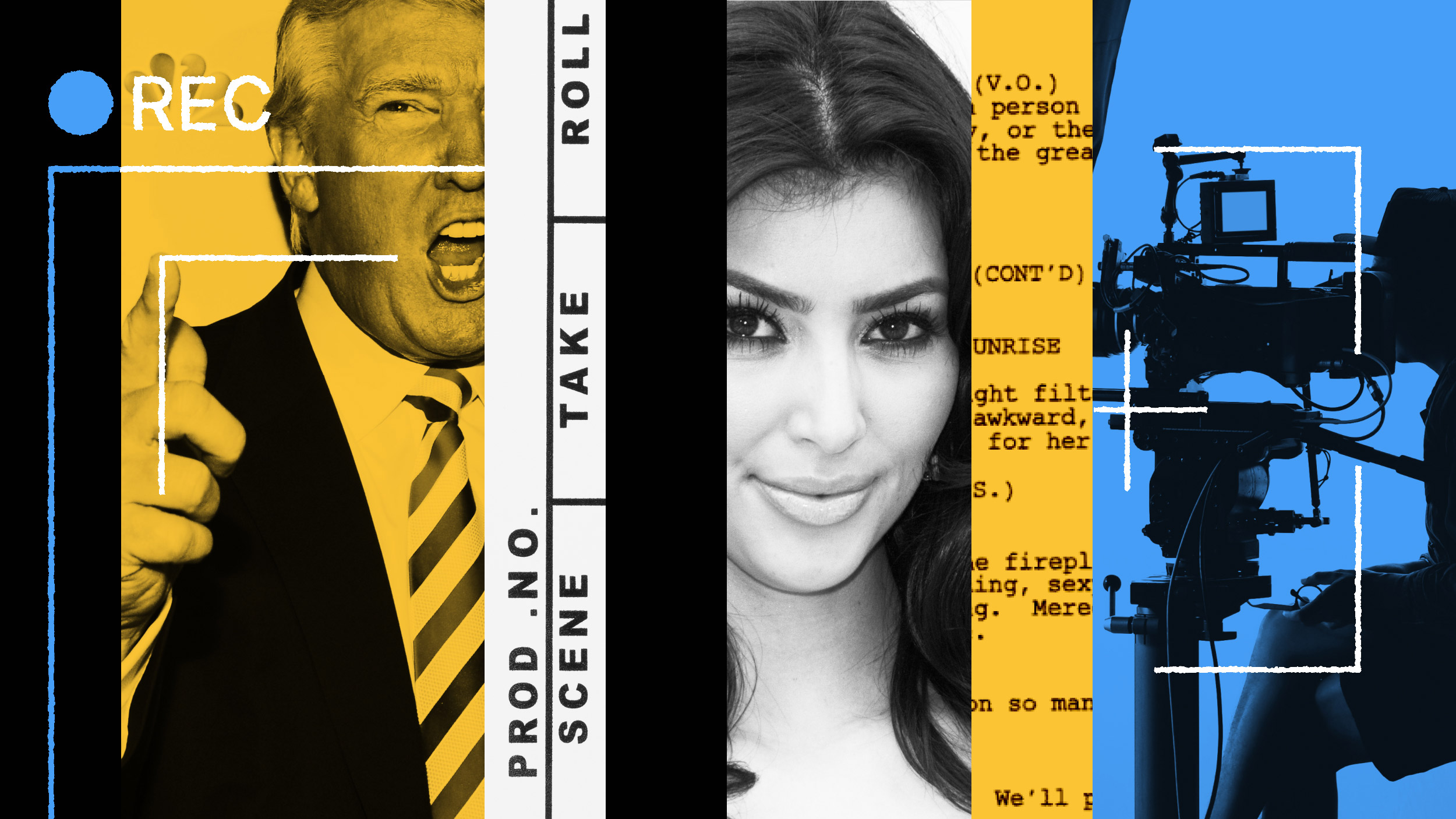Sleep, Work, War, and Other Things We Can’t Agree On

For better and worse, I’m an American. There are many far more difficult places on the planet to live. Syria right about now, for example. I feel lucky to have been born in a country where the vast majority of people take surviving to old age for granted, and where same-sex marriage and marijuana are both fast becoming legal nationwide.
But something is rotten in the land of the free. A few things actually. America: I can’t quite love you, and I can’t quite leave you.
There’s the fact that we can’t seem to agree on a unified vision of what the country’s about. Blame the media. Blame Congress. Blame whoever or whatever you like, but we seem to be shouting our opinions into hermetically sealed bubbles filled with people who think exactly like we do. To our “tribe,” as I once heard Glenn Beck nauseatingly call his fan base. There is no sense whatsoever that we are on the same page here, working toward some roughly agreed upon vision of a better future.
For example: Do we want to turn our children into sleepless, stressed-out, ridiculously overscheduled robots desperately competing with Chinese kids they’ve never met because of the disparity in global test scores and the rapid changes in the global economy? South Korea provides a cautionary tale here: While growing its economy at an extraordinary rate over the past decades it has also managed to create a system in which 75 percent of its children spend five hours a day in private after-school academies and are perpetually sleep-deprived. At 33 per 100,000 people*, the nation has one of the highest suicide rates in the world.
And how about the adults? Americans don’t sleep anymore. We don’t take vacations. These are not just economic indicators––they’re cultural indicators. They indicate something fundamental about our changing values. (It seems clear enough to me that the change is bad news, but I guarantee you there will be comments on this post defending our workaholism as the right response to today’s competitive world, and the alternative as some kind of “socialist” laziness.)
But what has all this “human progress” been for, all the automation and “scaling up” and so on if not to free us from the yoke of agricultural and early industrial slavery so that we can spend our time doing something more worthy of and interesting to our big brains than pushing an oxcart or affixing dashboard knobs to Fords? But as with so many things, we’re not in agreement about this either, and in the meantime, what remains of the middle and upper-middle class are spending their lives yoked to emails and iPhones while the growing lower classes suffer as they always have, but with more tech to anesthetize them.
Now let’s talk about race, another glaring American issue that has recently been getting a lot of press; not because more police are shooting black people than ever before, but because for some reason many of us are suddenly more outraged about it (pretty late in the game, but undeniably a good thing). I do not, personally, have a single close friend of color, unless you count my good friend Ed, who is half Puerto-Rican, half Chinese and grew up feeling accepted by neither community. Why is that? Am I a racist? Aside from the racism inherent in being a beneficiary of white privilege and a member of a racially divided society, I don’t think so. I believe fiercely in equal opportunity and don’t want to see anyone separated or marginalized (except for groups like the KKK that want to marginalize others). But there’s a cultural backstory here. I grew up in Bethesda, Maryland, a mostly white suburb of Washington, DC. My high school, a fancy boys’ private school in DC, had 60 kids in a class, maybe three or four of whom were black or Latino. There were very few people of color in my undergraduate acting program at NYU or in my graduate school in Santa Fe, New Mexico, but even if there had been, chances are we wouldn’t have hung out much because growing up in America we’d have been separately acculturated by that time to the point where we just naturally gravitated to people of similar skin color. There are exceptions, of course, but generally speaking, this is true, whether or not you went to a fancy private school. And it’s terribly, terribly sad.
Our public schools (one of which my seven year old attends) are a perfect diorama of the partisan muddleheadedness of America as a whole. In my son’s school, lip service is paid to creative thinking and problem solving. He does a bit of coding here, a bit of art there, and “science experiments” like floating different kinds of wood in water. But the majority of his hours are spent hunched over a desk finding textual evidence for his response to some passage or other, or filling out worksheets geared not quite toward the Common Core as it’s written, but toward the denatured, formulaic version of it that’s reflected in the statewide tests, by which his school and his teachers are measured. This is a “gifted and talented” school for whose 50 kindergarten spots 20,000 kids in New York competed. It has other good qualities — loving teachers, sweet kids, incredible cultural and economic diversity — or we’d yank him out of there in a second. But what exactly is it teaching my son besides the granular skills of math and literacy he could learn in any halfway decent school? Endurance?
If I could afford to send him to private school ($40K/year on average in New York City), I could tribalize, cherry-picking the cultural values I wanted instilled in him (honesty, curiosity, creativity, compassion, pursuit of self-knowledge). I could find a school to fit my niche. But that’s not the point. The point is that America, at least the breathless, soaring sense that that word stirs in anyone who has any love for what this country was allegedly, originally meant to stand for, ought to be able to do better.
Historically speaking, nothing clarifies a nation’s values like a war. I am not so naive as to think that humanity has yet evolved beyond violence as a solution to our problems (although Steven Pinker makes a pretty persuasive case in this book that we’re headed in that direction). But I’d like to think that we can reach the point as a species where it doesn’t take the stark contrasts of war to help us arrive at some guiding principles. As Oxford philosopher Nick Bostrom points out in his recent book Superintelligence, our efforts at creating artificial intelligence may soon provide a startling test case for how willing we are to think through the consequences of our actions before it’s too late.
If things continue on their present course the question of how we want to live will expand beyond national borders to encompass the whole species. Then things will become really interesting. If China and America become significantly more interdependent than they are now, for example, how will we resolve rising tensions between individualism and collectivism? Creativity and conformity?
I don’t know. But you can’t have it both ways. Either you sleep enough and take vacations or you don’t. Either you care about the suffering of fellow humans who aren’t your close friends and family or you don’t. Either you march inexorably, driven by market forces and short-term self-interest toward an increasingly hypercompetitive, soulless future or you decide to go in a different direction. Ultimately, tribalism is unsustainable, even for the mega-rich. One culture or the other will win. And at the moment, from where I’m standing in America at least, I’m not really liking the odds.
—
come talk to @jgots on Twitter
AND: The witty and wise Baratunde Thurston is this week’s guest on Think Again – A Big Think Podcast, LIVE on iTunes, SoundCloud, and Stitcher! Jason Gots hosts. Interview clips from Rick Smolan, Lawrence Krauss, and Guy Kawasaki launch a discussion of human potential, social status, identity, and how Kim Kardashian’s butt didn’t actually “break the internet.”
*CORRECTION: The original version of this article erroneously reported South Korea’s suicide rate as 33.3%, which, as a helpful reader pointed out, was clearly way too high.





